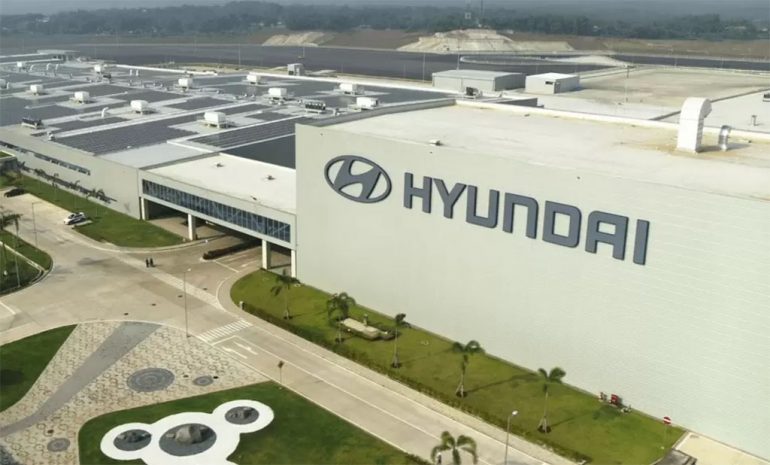
Hyundai is eagerly accelerating its plans to establish electric vehicle (EV) and battery production facilities in Georgia. This ambitious endeavor, valued at $7.6 billion, has been expedited by the allure of federal incentives designed to promote domestic EV production.
Hyundai’s President and Global Chief Operating Officer, Jose Munoz, recently shared this news with reporters in Atlanta. Munoz’s announcement came on the heels of Hyundai’s strategic partnership agreement with Georgia Tech, aimed at bolstering research efforts focused on hydrogen-fueled vehicles and providing a skilled workforce for the Korean company. The event was graced by the presence of Euisun Chung, executive chairman of Hyundai Motor Group, which encompasses not only Hyundai but also Kia and Genesis vehicles.
Also, don’t forget that you can get discounted new car pricing with a free quote through qualified local dealer partners.
One pivotal factor driving Hyundai’s haste is the Inflation Reduction Act, a substantial federal law championed by President Joe Biden to combat climate change. This legislation offers a tax credit of up to $7,500 for EV buyers but restricts the benefit to vehicles produced in North America with domestically manufactured batteries. While this law has indirectly assisted Hyundai and other companies importing EVs, as dealers can apply the credit to leased vehicles regardless of their origin, it has also spurred Hyundai to accelerate its U.S.-based production efforts.
Munoz emphasized Hyundai’s commitment to the EV market, noting that while they will continue producing gasoline-electric hybrid vehicles for the time being, hybrids are seen as a transitional step towards fully electric vehicles. He also expressed Hyundai’s interest in developing fuel cell technology, particularly for heavy-duty trucks and long-distance vehicles.
To align with the Inflation Reduction Act and ensure the sourcing of batteries is entirely domestic, Hyundai and its battery partner, LG Energy Solution, increased their investment in battery production at the Georgia complex by an additional $2 billion. This investment will also expand the facility’s capacity to supply batteries for all 300,000 vehicles Hyundai plans to assemble in Georgia. Munoz emphasized the significance of using cutting-edge technology in battery production.
Construction of the Georgia plant is progressing rapidly, and Hyundai remains undeterred even in the face of challenges like Hurricane Idalia. The automaker stands to qualify for significant state and local tax incentives, amounting to $2.1 billion, as part of its commitment to employ workers at an annual average wage of $58,105, plus benefits.
Furthermore, Hyundai is placing a strong emphasis on hydrogen-based technology, with a particular focus on heavy-duty trucks and long-range vehicles. They are eager to leverage Georgia Tech’s research expertise in hydrogen to advance this technology and are exploring opportunities for creating hydrogen fueling stations in the region.
The partnership with Georgia Tech not only signifies a milestone in Hyundai’s commitment to innovation and sustainability but also offers a promising avenue for graduates to pursue careers at the forefront of automotive technology. As Munoz aptly put it, “More and more the jobs we’re bringing are highly skilled, highly qualified.” Hyundai envisions its plant as a cutting-edge laboratory, and they are actively seeking young, talented individuals to help drive their vision of the future of transportation.
Source: Associated Press